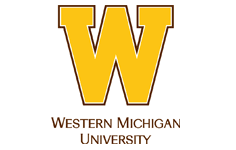ScholarWorks > WMU > Perspectives > Vol. 3 (1971) > No. 3
Abstract
For, regardless of the current flurry of excitement concerning new directions in teaching and learning, I feel that we are still adrift and perilously off course when it comes to assessing what is in our best interest. Almost everyone nowadays is talking about educational reforms and there is a good deal of agreement that change must be in the direction of fostering more humanistic, life-enhancing processes. More often than not, however, what we term bold new ventures into self-discovery, enhancement of growth, or whatever phrase suits our taste, are actually old and quite stale wines in new wineskins. An old saying I like very much is that before we act in accordance with our best interests, we should be certain that we really know what our best interests are. Which is to say, I believe we generally pay less attention to what is really worth teaching than we do to how to pull education off. In the same way, we fail to see how difficulties encountered in designing pedagogical techniques can be symptoms of a poorly comprehended purpose, a distorted view of organismic processes, or both. As in logic, when a properly stated problem is seen to contain, in part, its own solution, so also an educational philosophy, validly conceived, suggests its own pedagogical devices. The point being, that puzzling over how to teach in an effective, humane and self-fulfilling way often results from having the sentiment for a new education, but not an understanding of the immensely different ways in which we must first perceive ourselves, other people, and the universal processes we call life. As the old saw goes, we seem to know the words, but not the music. Accordingly, let us exercise care in assuming that our innovative ideas about education are really innovative, and not just some reiterated themes of yesterday adorned with the modish fashions of today's vocabulary.
Recommended Citation
Williams, Richard R.
(1971)
"Learning to Swim,"
Perspectives (1969-1979): Vol. 3:
No.
3, Article 4.
Available at:
https://scholarworks.wmich.edu/perspectives/vol3/iss3/4



